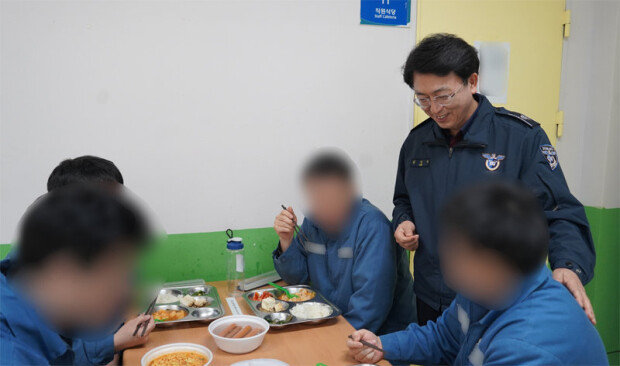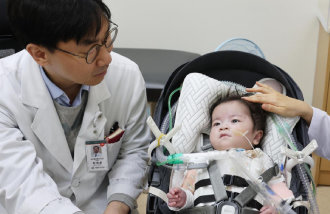Rehabilitation's importance parallels severe punishment
Rehabilitation's importance parallels severe punishment
Posted March. 06, 2024 07:51,
Updated March. 06, 2024 07:51

Warden Kim Young-sik, in an interview on Monday, highlighted the insufficient awareness of rehabilitation within Korean society, while acknowledging the necessity for appropriate punishments. Also serving as a pastor at a church in Gunsan, North Jeolla Province, Kim transitioned from his prior role as a high-ranking correctional officer to ordination as a pastor before assuming the warden position at Somang Penitentiary in January 2023. Established in 2010, Somang Penitentiary is Korea's first civilian correctional facility under the administration of the protestant Agape Foundation, entrusted by the government.
Q: I noticed that inmates were having meals together at the canteen.
A: In most state-run prisons, meals are provided in confined individual spaces. However, here at Somang Penitentiary, approximately 400 inmates are divided into four groups and take turns having meals at the common canteen. They return to their cells after meals. Despite concerns about potential conflicts, there have been no incidents during my tenure over the past year. Walking together and conversing while eating are fundamental human desires, and they themselves constitute healthy physical activities. We believe such activities contribute to inmate rehabilitation.
Q: Some say they need to be under more severe punishment.
A: I understand the sentiment of anger, and certainly, convicts must face the consequences of their actions. However, many of them come from deprived backgrounds where they had little choice but to witness and adopt delinquent behaviors. It's important to remember that, except for those on death row, convicts will eventually return to society. Therefore, at least within the prison, we strive to create a warm and nurturing environment for inmates. This is precisely why our focus is on rehabilitation. We aim to implement a well-structured rehabilitation program while protecting their rights and improving their treatment.
Q: I heard that the competition here is fierce, with the application rate surpassing 3:1 or 4:1.
A: We receive applications from correctional facilities nationwide and select approximately 20 convicts monthly. Eligibility criteria include a sentence of seven years or less with no more than two previous convictions, while individuals involved in felonies such as gang violence or drug offenses are excluded. After a thorough review of applications, we prioritize willingness to change during interviews. Our high application rate is due to our provision of superior treatment and more personalized rehabilitation and mentoring programs compared to state-run prisons.
Q: You mentioned that prison is the last gateway to changing an individual.
A: They committed crimes because they were in a bad environment. What if, after being treated worse than the environment where they committed crimes, they are released back into society? Innocent civilians will bear the brunt of such damage. Many inmates have been deeply scarred by their childhood experiences, encountering little forgiveness themselves and, therefore, unable to extend forgiveness to others. These unresolved issues often lead to anger and, ultimately, more crimes. However, I have witnessed significant transformations in inmates who receive good educational support and engage in positive interactions and humane relationships with volunteers here. We should never give up on individuals who can profoundly change when given adequate opportunities.
Chin-Ku Lee sys1201@donga.com







